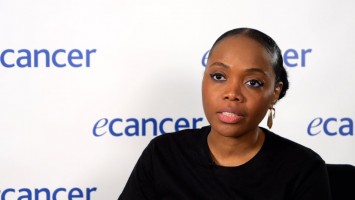The HCC, as we fondly call it, was formed in 2008 following the landmark meeting of heads of government in the Caribbean around NCDs; it was an NCD summit and there was a Port of Spain declaration. Out of that declaration was an acknowledgement that to address NCDs as a development issue there needed to be a whole of society approach in which civil society was fully engaged. So that’s what spurred the formation of the HCC. Right now our membership consists of health NGOs and non-health NGOs, we also have individual members and we have for profit organisations, non-tobacco, non-alcohol. We have a wide network of cancer societies as part of the alliance. We have formed, amongst the cancer societies, a Caribbean Cancer Alliance which connects the cancer societies from across twenty of the CARICOM countries, it connects them informally on an online platform through Facebook and then it connects via email. They’ve worked together to do a number of things including developing a regional petition, funded largely in part through the American Cancer Society in 2014/15, which was aimed at encouraging heads of government to make cervical cancer screening accessible to all women. So that was a success, we had many signatures from across the region, individuals and organisations committed, and as a result out of that we built the capacity of these organisations to advocate and lobby for any sort of services along the continuum of cervical cancer prevention and treatment. One of those was HPV vaccination so in a few of the countries they were successful in working with public sector, so their government partners, to introduce national HPV vaccination programmes for boys and girls through schools. So that’s one of the successes.
What’s next for the organisation?
What we’ve been working on within the context of cancer is still trying to build our work on cervical cancer, still very much only half of the countries have HPV vaccination as part of their national programme so continued advocacy in that area; continued advocacy around the full gamut of cancer care and prevention and control; continuing to build the connections in the network. What we’ve done as a result of the network that we’ve created through the Caribbean Cancer Alliance, we’ve allowed for sharing of resources in settings in which there may not be chemotherapy or radiotherapy services. The countries are now working together to facilitate sharing of those resources. Physicians are working together, as a result of that there’s now a physician training programme which is training gynae-oncologists. So there have been a lot of really positive outcomes and we’re continuing to work in that direction partnering with the National Cancer Institutes in the US, the Caribbean Public Health Agency in the Caribbean and governments around a number of issues. Some of the priorities include cancer registries and continuing to build the capacity of cancer organisations to work more effectively with the NCD focal points in countries to develop and then implement their national cancer plans where they exist.








